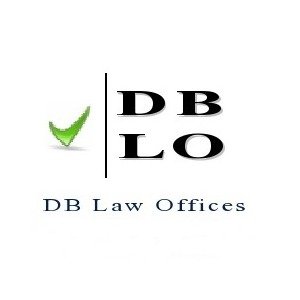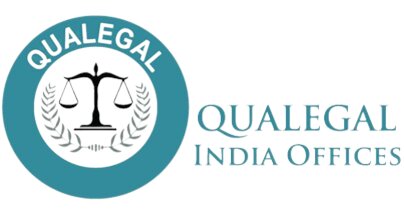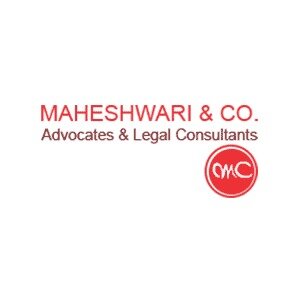Best Creditor Lawyers in New Delhi
Share your needs with us, get contacted by law firms.
Free. Takes 2 min.
List of the best lawyers in New Delhi, India
About Creditor Law in New Delhi, India
Creditor law in New Delhi, India deals with the rights and obligations of individuals and businesses who lend money or extend credit to others. It primarily focuses on the legal framework governing loan agreements, debt recovery, and protecting the interests of creditors.
Why You May Need a Lawyer
Legal help from a lawyer specializing in creditor law can be beneficial in various situations, such as:
1. Recovering debts: If you are owed money and facing difficulties in recovering it, a lawyer can guide you through the legal process of debt recovery.
2. Negotiating loan agreements: When lending money, it is crucial to have proper documentation in place. An attorney can help you negotiate favorable terms and ensure that your rights as a creditor are protected.
3. Handling bankruptcy cases: If a debtor files for bankruptcy, creditors may face challenges in recovering their dues. A lawyer can assist you in navigating the complex bankruptcy procedures.
4. Resolving disputes: In case of disputes arising from credit-related matters, a lawyer can provide legal advice, represent you in court, and help seek a fair resolution.
Local Laws Overview
Key aspects of local laws relevant to creditors in New Delhi, India include:
1. The Indian Contract Act, 1872: This law governs the formation and enforcement of contracts, including loan agreements, in New Delhi.
2. Insolvency and Bankruptcy Code, 2016: This legislation deals with insolvency matters, including the resolution and liquidation of debts. It provides a framework for debt recovery and protects the rights of both creditors and debtors.
3. Securitization and Reconstruction of Financial Assets and Enforcement of Security Interest Act, 2002 (SARFAESI Act): This law empowers secured creditors to recover defaulted loans by enforcing their security interest without court intervention.
Frequently Asked Questions
Q: How can I recover a loan owed to me?
A: The process of debt recovery typically involves issuing a legal notice to the debtor, initiating legal proceedings, and seeking a court judgment. Consult with a lawyer to understand the specific steps applicable to your situation.
Q: Can I take legal action against a debtor who has declared bankruptcy?
A: When a debtor declares bankruptcy, creditors may be able to initiate legal proceedings by filing a claim with the bankruptcy court. However, the outcome will depend on the specific circumstances and the bankruptcy proceedings.
Q: What are the available remedies if a borrower defaults on a loan?
A: As a creditor, you may have various remedies available, such as initiating recovery proceedings, enforcing security interests, or seeking the appointment of a receiver to manage the debtor's assets. A lawyer can guide you on the best course of action based on your specific circumstances.
Q: Can a lawyer help me negotiate a loan agreement?
A: Yes, a lawyer specializing in creditor law can assist you in negotiating the terms of a loan agreement, ensuring that your interests are protected, and all necessary legal requirements are met.
Q: How do I know if my rights as a creditor are being violated?
A: If you suspect that your rights as a creditor are being violated, seek legal advice immediately. A lawyer can assess your situation, review relevant documents, and advise you on the appropriate legal actions to protect your rights.
Additional Resources
For further information and assistance regarding creditor law, you may find the following resources helpful:
- Ministry of Corporate Affairs, Government of India: www.mca.gov.in
- Debt Recovery Tribunals (DRT): www.drt.gov.in
- SARFAESI Act: www.legalaffairs.gov.in
Next Steps
If you require legal assistance in creditor matters in New Delhi, India, it is advisable to consult with a lawyer specialized in creditor law. They can provide personalized guidance based on your specific circumstances and help protect your rights as a creditor.
Lawzana helps you find the best lawyers and law firms in New Delhi through a curated and pre-screened list of qualified legal professionals. Our platform offers rankings and detailed profiles of attorneys and law firms, allowing you to compare based on practice areas, including Creditor, experience, and client feedback.
Each profile includes a description of the firm's areas of practice, client reviews, team members and partners, year of establishment, spoken languages, office locations, contact information, social media presence, and any published articles or resources. Most firms on our platform speak English and are experienced in both local and international legal matters.
Get a quote from top-rated law firms in New Delhi, India — quickly, securely, and without unnecessary hassle.
Disclaimer:
The information provided on this page is for general informational purposes only and does not constitute legal advice. While we strive to ensure the accuracy and relevance of the content, legal information may change over time, and interpretations of the law can vary. You should always consult with a qualified legal professional for advice specific to your situation.
We disclaim all liability for actions taken or not taken based on the content of this page. If you believe any information is incorrect or outdated, please contact us, and we will review and update it where appropriate.














